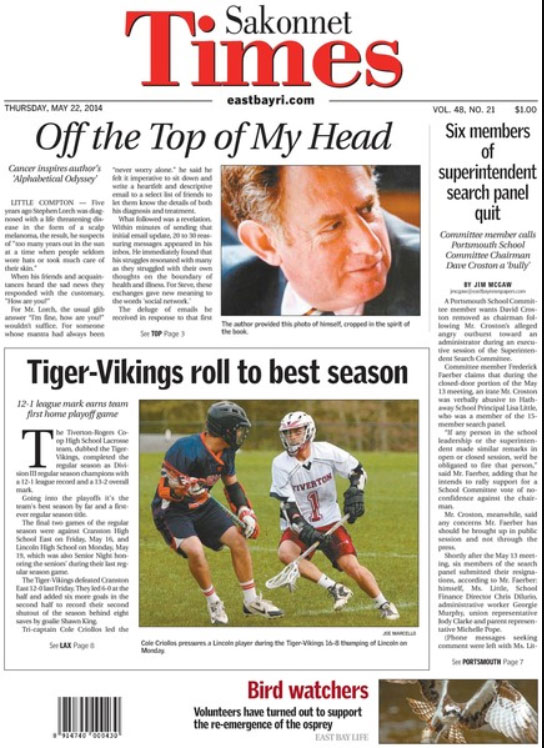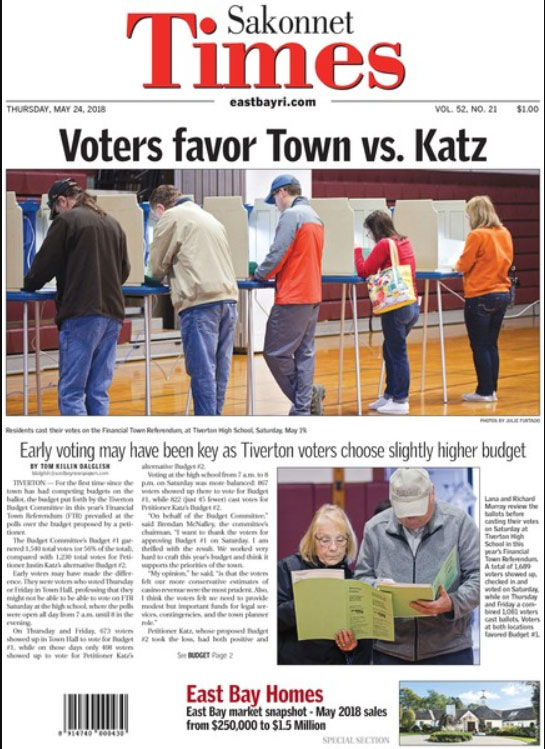The Media’s Truth-Speaking for Friends
Across the country, newspapers large and small are engaging in a coordinated rebuff to the President of the United States, insisting that they are not the “enemy of the people.” Jeff Jacoby, a conservative columnist for the Boston Globe has been tweeting quotations from the editorials, including this one, from the Manchester Journal in Vermont:
“And if the press is your enemy, who would be your friend? Who would tell you the truth about your government, your police, your schools? Who would speak truth to power & allow you to do the same?”
Now, given my palpably lower currency with the local news media recently (conspicuously coinciding with the Trump presidency), I’m disinclined to pick fights over their feel-good campaigns, but the urge to do that speaking truth to power thing is often too strong for me to resist. The bottom line is that “friend” and “truth” are not feelings I’ve learned to associate with the news media.
To be clear, I’ve considered individual journalists to be friends over the years, and I’ll generally trust that reporters will present facts accurately. But there are a whole lot of ways to present facts in an untruthful way, and the news media generally feels hostile to people who have conservative or traditional views. It’s just the way it is. These two feelings come together in the reality that human beings will naturally judge information to be newsworthy based on their ideological views. Thus, facts that support a conservative point of view will tend not to be deemed worth reporting.
The best example I can think of is hyperlocal. In 2014, in our capacities as voters in the Town of Tiverton, some friends of mine and I developed an alternate budget for the town that included a zero percent tax increase for the 2015 fiscal year. This was a grassroots movement; it followed a decade of exploding taxes; and it won. Here’s the front page of the Sakonnet Times the week after that result:

Somewhere inside the paper, a blurb reported the results of the vote in the same way a local newspaper might report any government action of modest interest to the general public.
Budgets that I submitted with low tax increases went on to win for three years in a row, followed by a similar proposal from the town budget committee when my friends and I held a large number of seats, all with the same treatment… or even no mention at all… in the Sakonnet Times. In stark contrast this year, after government officials, the town solicitor, and their allies conducted a vicious, dishonest campaign and managed to get their budget over the finish line, this was the Sakonnet Times front page:

To be fair, when I spoke to the editor, he explained that the usual editor was out on extended leave and insisted that he couldn’t understand why every budget wouldn’t get the same coverage, regardless of the outcome. This excuse, however, only amplifies the strangeness of the usual editor’s decision not to emphasize the budget results when the town government lost, and it doesn’t address the substitute editor’s phrasing of the story. The headline isn’t about budgets. It’s an announcement that the voters “favor” the town over me, personally.
[box type=”tick” style=”rounded”]Please consider a voluntary, tax-deductible subscription to keep the Current growing and free.[/box]
Again, this is just an easy-to-explain example of something that can be found very, very broadly, and it captures the essence of many people’s sense of the news media, large and small. Speaking “truth to power” only applies when the “power” is somebody who is not the journalists’ “friend.”
That doesn’t make those journalists an “enemy of the people,” of course. What is objectionable about President Trump’s rhetoric about the press, however, isn’t that he accurately calls out their bias (their selective friendship). It’s that, as president, his sense of “the people” should include those for whom the news media is an ally. On the other hand, if the news media is going to claim the status of a critical institution representing all people, the same standard ought to apply to it.

